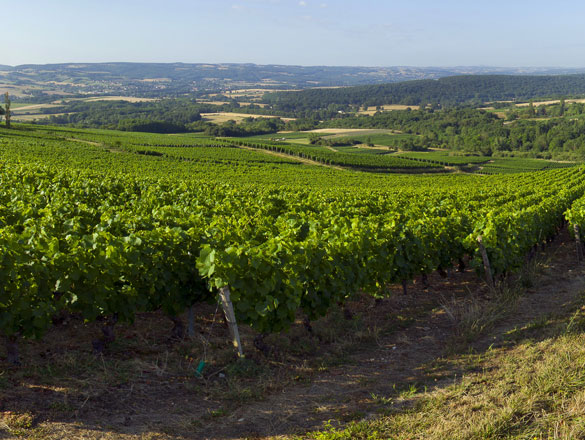

The vineyards of Bourgogne produce some great wines with a historical and international reputation. However, the region is not simply limited to its iconic appellations. In addition to its Village Premier Cru and Grand Cru AOCs, it also produces a range of wonderful Régionale and Village appellations to explore.
You will also find a full list of the Bourgogne’s Climats and lieux-dits on this page.
Check out the complete list of the 84 Bourgogne appellations.
However, your exploration has only just begun. Bourgogne wines have never before offered such high quality. Besides our range of internationally celebrated wines, try some of our lesser-known appellations where there are lots of surprises in store.
And for a fun way to find out more about the wines on offer, try out our “Which Bourgogne wine is right for me?” quiz, or check out Bourgogne Maps to take an interactive tour of the region.
Regionale Appellation ; Dénomination Géographique Complémentaire
VIGNOBLE DE LA CÔTE CHALONNAISE
31 juillet 1937
Reds exclusively : Pinot Noir
Area under production*:
1 hectare (ha) = 10,000 m² = 24 ouvrées.
47.31 ha approx.
Average annual yield**:
1 hectolitre (hl) = 100 litres = 133 bottles.
999 hl
*In 2022 **5-year average, 2017-2021
Appellation Régionale of the Couchois region (Saône-et-Loire).
The name CÔTES DU COUCHOIS may only be added to the word BOURGOGNE in the case of red wines produced within the defined area of the appellation.
Producing communes: Couches, Dracy-lès-Couches, Saint-Jean-de-Trézy, Saint-Maurice-lès-Couches, Saint-Pierre-de-Varennes, Saint-Sernin-du-Plain.
On the label, the words CÔTES DU COUCHOIS must follow the word BOURGOGNE.

The colour is a straightforward but intense ruby tending slightly towards purple. Its bouquet suggests small red fruits (strawberry, gooseberry) and black fruits (blackcurrant, blackberry), followed by underbrush, mushroom, fruit-pits, spice, leather and fur. In the mouth, the wine is hearty and muscular. Extravagant, a touch rough in youth, but persistent and at the top of its form after two or three years. This wine does a fine job representing its terroir and possesses an authentic Burgundian soul.

Red: this wine is open, honest and direct by nature. It has a solid tannic structure and a broad but light aromatic register. It is the ideal companion of poultry pies, fried veal, quiches, and hamburgers. Barbecues and pork spare-ribs honour its balanced directness and its black and red-fruit aromas. Choose full-flavour cheeses such as Pont-l’Évêque, Epoisses, or Vacherin.
Serving temperature: 14 to 16°C.

The Couchois region, lying South of the Maranges and South of the Hautes Côtes de Beaune, has been a wine-growing area since time immemorial .This hilly part of the region has achieved recognition as a distinct portion of the AOC Régionale Bourgogne (since the 2000 harvest) after a long campaign to have its quality officially recognised. Its red wine from the Pinot Noir grape is produced in the communes of Couches, Dracy-lès-Couches, Saint-Jean-de-Trézy, Saint-Maurice-lès-Couches, Saint-Pierre-de-Varennes and Saint-Sernin-du-Plain.

The vineyards lie on the clays and marls of the Upper Lias and amongst the limestones of the Middle Jurassic. Good easterly and southerly exposures provide excellent growing conditions for the Pinot Noir grape. These soils are close neighbours of the southern portion of the Hautes Côtes de Beaune and lie at altitudes between 200 and 300 metres.
